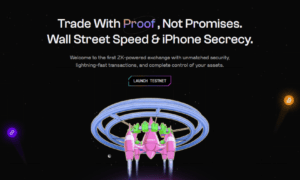Blockchain interoperability has been a key focus area of the crypto industry for the past few years. In simple terms, it just means that one set of assets and capabilities that can be accessed on a particular blockchain network can also be utilized on another distributed ledger technology (DLT)-based network. This is helpful because we may have cryptocurrencies like Bitcoin that we may want to use on other chains to carry out advanced transactions.
For instance, we may want to use BTC to engage with lending, borrowing, and staking protocols. Since the actual Bitcoin protocol doesn’t have this type of functionality, many individual users and developers have been creating decentralized applications (dApps) on Ethereum (ETH), which is a Turing complete system enabling users to write smart contracts.
In addition to ETH and other digital tokens (like ERC-20 compliant tokens) being used to carry out transactions on Ethereum, Wrapped Bitcoin (BTC), a tokenized version of Bitcoin, has been used to engage with various applications. However, there are a number of innovative projects in the market now that are planning to offer something different and arguably better.
Enabling Fast, Secure, Private Atomic Swaps
For instance, the developers of Portal aim to enable interoperability of multiple blockchains with their new Bitcoin “native” protocol. Portal is described as a self-hosted Layer-2 wallet and cross-chain DEX, built on Bitcoin. It has been designed to make atomic swaps between Bitcoin and other cryptocurrencies. These transactions may be carried out quickly and in a secure and private manner.
Decentralized cross-chain bridging remains a key challenge to address in the crypto space. This is exactly what Portal is trying to do. The developers will create solutions that will support interoperability of several different DLT networks with their Bitcoin native protocol. This approach will enable multi-chain transfers and offer a viable bridging mechanism to onchain users.
Interoperability between different blockchains is actually a necessity now, because most users will want to interact with more than just one chain. A single blockchain won’t be enough to meet the diverse set of requirements of sophisticated financial service clients.
In addition to accessing a wide range of services, users will also want to conduct transactions in a secure manner. That’s one of the reasons why Portal will be leveraging Bitcoin’s security as an anchor. This should help with building an effective bridge to the world of decentralized finance (DeFi).
As explained by its developers, Portal will provide the speed and liquidity you’d typically find on large centralized platforms. But it will go a step further by offering the trust minimization guarantees of the Bitcoin protocol.
As noted by its creators, Portal will allow us to tap into Bitcoin’s potential to truly decentralize finance. This means that people can seamlessly access spot markets, take part in options trading, become active as a P2P lender, and even start borrowing assets. These activities may be performed on-chain. Users may also enter peer to peer contracts and need not work with intermediaries for asset custody.
This is all made possible with the help of Fabric, which is an open-source Layer-2 and Layer-3 tech that can be used to implement censorship-resistant layers on top of the Bitcoin base layer. Fabric has been developed to support fully private, off-chain smart contracts for the purpose of issuing digital assets, performing P2P swaps, staking, liquidity, and also for trading derivatives,
Enabling Interoperability to Cater to Mainstream Investors, Traders
This is truly a comprehensive range of financial services that mainstream institutional investors and traders are expecting from their service providers. All of these financial services are not actually unique or novel in any way. However, the real value proposition here is that they may be accessed in a decentralized, permissionless, and censorship-resistant manner. In addition to that, users may choose to transact across multiple blockchains with a wide range of digital currencies.
Portal CEO Eric Martindale says that they think Bitcoin offers the “much-needed” financial infrastructure that the free, open, uncensorable “internet-of-the-future” will be built on. While they’re currently only offering a P2P exchange, their goal is to serve as “the platform” for decentralized, peer-to-peer human interactions. That would also include communications, financial transactions, and even social media at some point in the future.



































